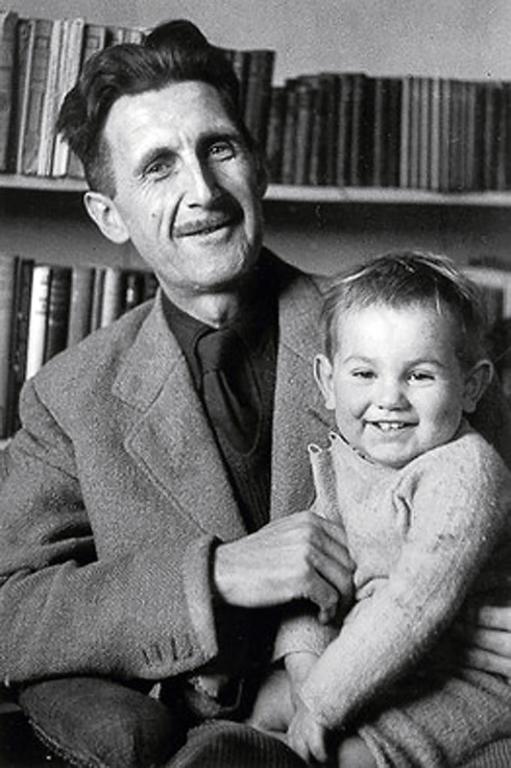George Orwell, the pen name of Eric Blair, was a socialist, to the point of volunteering with other leftists to fight in the Spanish Civil War against Franco. But his experience with the Communist Party in that conflict, in which he was wounded, turned him into an anti-Stalinist and, more generally, an anti-totalitarian.
This would lead to his writing the anti-Communist fable Animal Farm and his powerful dystopia of an all-powerful government 1984 (both available free on Kindle at the link).
In another good article in The European Conservative, Jonathon Van Maren observes that Orwell was also “vehemently” pro-life, quoting a novel from Orwell’s socialist days. From The Last Days Of George Orwell:
Leftists who claim Orwell as their own would likely be surprised to discover that he was very socially conservative, vehemently opposing abortion. He was a man of principle and hated injustice wherever he found it. In his 1936 novel Keep the Aspidistra Flying, the protagonist is horrified when his girlfriend suggests they procure an abortion:
His baby had seemed real to him from the moment when Rosemary spoke of abortion … But here was the actual process taking place. Here was the poor ugly thing, no bigger than a gooseberry, that he had created by his heedless act. Its future—its continued existence perhaps—depended on him. Besides, it was a bit of himself—it was himself. Dare one dodge such a responsibility as that?
That is, in fact, the turning point of the novel, as the couple both turn against aborting their baby, whereupon the protagonist repudiates his radical ideals and chooses marriage and middle-class respectability instead.
Van Maren goes on to show that Orwell was pro-life in his personal life too. He interviews Richard Blair, Orwell’s son whom he and his wife Eileen adopted when he was three weeks old. Eileen died nine months later, whereupon Orwell threw himself into caring for their son. Orwell himself died of tuberculosis in 1950. He was only 46, and his son was 5.
Of course, being against abortion was not an anomaly back then, even for a socialist, or maybe especially for a socialist, given their opposition to the oppression of the weak and their concern for justice.
And Orwell was always able to cut through the obfuscations of ideological rhetoric to recognize the concrete realities that were at stake. From his other masterpiece, Politics and the English Language (available at the link for 99 cents on Kindle and for free online here), my bolds:
In our time, political speech and writing are largely the defence of the indefensible. Things like the continuance of British rule in India, the Russian purges and deportations, the dropping of the atom bombs on Japan, can indeed be defended, but only by arguments which are too brutal for most people to face, and which do not square with the professed aims of political parties. Thus political language has to consist largely of euphemism, question-begging and sheer cloudy vagueness. Defenceless villages are bombarded from the air, the inhabitants driven out into the countryside, the cattle machine-gunned, the huts set on fire with incendiary bullets: this is called pacification. Millions of peasants are robbed of their farms and sent trudging along the roads with no more than they can carry: this is called transfer of population or rectification of frontiers. People are imprisoned for years without trial, or shot in the back of the neck or sent to die of scurvy in Arctic lumber camps: this is called elimination of unreliable elements. Such phraseology is needed if one wants to name things without calling up mental pictures of them.
Apply that to, for example, the recent Democratic Party Platform:
Democrats are committed to protecting and advancing reproductive health, rights, and justice. We believe unequivocally, like the majority of Americans, that every woman should be able to access high-quality reproductive health care services, including safe and legal abortion. . .
Democrats oppose and will fight to overturn federal and state laws that create barriers to reproductive health and rights. We will repeal the Hyde Amendment, and protect and codify the right to reproductive freedom.
Photo: “George Orwell with his 2-year-old adopted son Richard Blair, at his flat at 22b Canonbury Square, Islington, London, November 1946,” by Levan Ramishvili via Flickr, Public Domain













